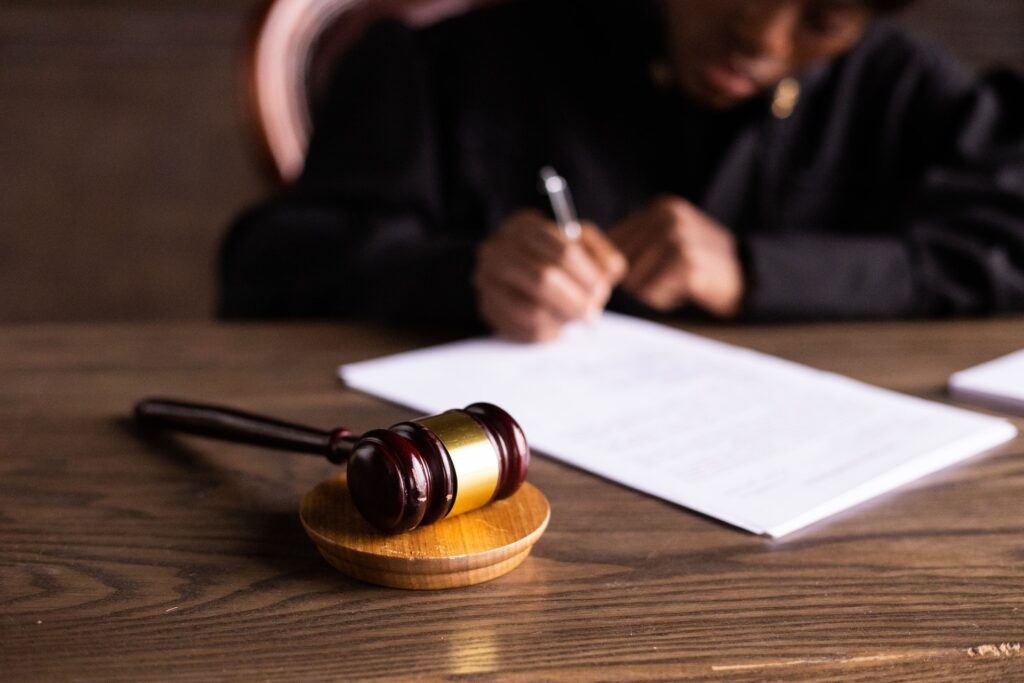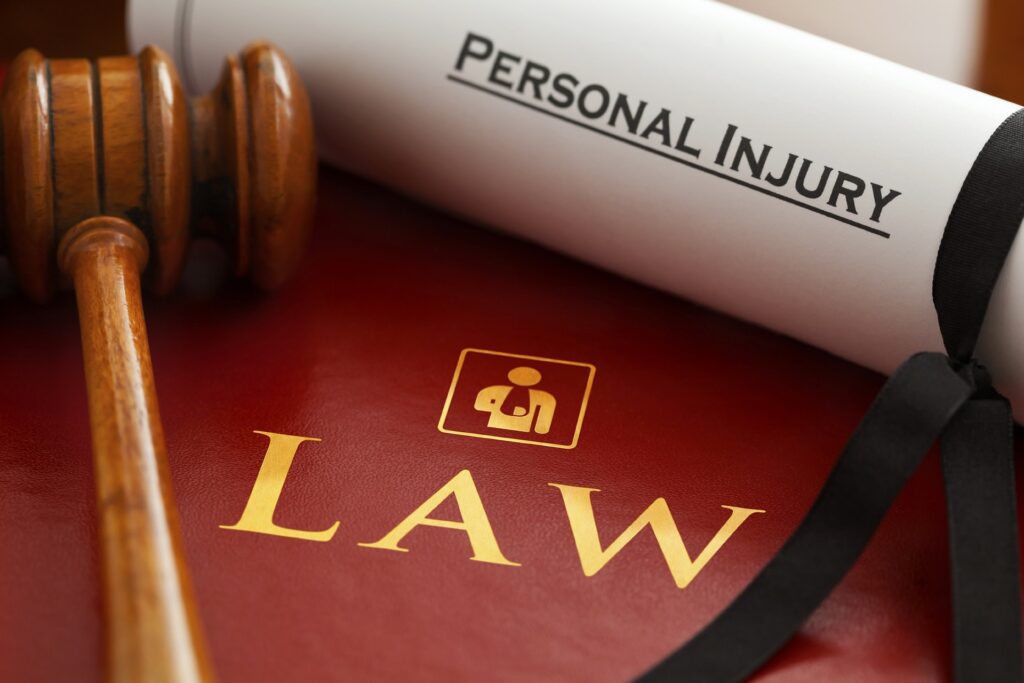Are you suffering harm due to another person’s negligent or intentional wrongful acts? Personal injury law enables you to seek legal recourse for the injuries and losses you suffered from those actions.
Personal injury cases can arise in different ways, including car accidents, slips and falls, medical malpractice, or defective products. According to Transactional Records Access Clearinghouse (TRAC), personal injury-product liability cases accounted for 34.6 percent of civil filings in 2022. Additionally, 6.4 percent constituted different types of personal injury.
Regardless of the type of case you have, you can claim compensation either through settlement or verdict. A personal injury lawyer can help decide whether to pursue a settlement or take your case to court.
In this article, The Personal Injury Center will walk you through a few examples of personal injury settlement amounts. Hopefully, you will get a better understanding of settlement claims, helping you set reasonable expectations for your case.
Key Takeaways
|
Types of Personal Injury That May Qualify for a Settlement or Verdict
Personal injury claims can arise from different situations. Understanding the circumstances behind an accident can help you determine the type of legal claim applicable to your case. It can also help you find a lawyer with substantial experience handling cases similar to yours.
Here are the most common types of personal injury accidents that may qualify for financial compensation or award.
Motor vehicle accidents
Motor vehicle crashes account for a significant number of personal injuries and fatalities worldwide. Inadequate road and weather conditions contribute to these accidents.
However, the primary cause of most auto accidents is reckless driving behavior. Recklessness on the road can take many forms, such as speeding, tailgating, and violating traffic rules.
The injured person in a motor vehicle accident may pursue compensation from the at-fault driver based on negligence. In this case, victims must prove that the liable party acted negligently and that their negligence caused the accident and injuries.
Product liability
Manufacturers and sellers are legally responsible for ensuring their products are safe to consume and functioning properly. Suppose a product leads to harm due to a manufacturing, design, or marketing defect. The injured party can claim compensation under product liability.
Although product liability can stem from negligence, it’s commonly associated with strict liability. Meaning you can hold the manufacturer or seller legally responsible regardless of whether they acted negligently or intentionally.
If the product were defective and caused someone harm, the liable party would have to pay damages. This type of personal injury case is less common than others. However, a single case can involve thousands of victims, often resulting in substantial payouts.
Premises liability
Property owners have a legal responsibility to exercise reasonable care and ensure the safety of their visitors. However, this duty only applies to those with the right to be on the premises.
Suppose you’re visiting for business or social purposes, and you get injured due to existing dangerous conditions on the property. You can hold the owner liable for your injuries under premises liability. But you need substantial proof to show that the property owner acted negligently.
Workplace accidents
Employers have legal obligations to keep their employees reasonably safe by providing a workplace free from dangerous conditions. Employees who sustain injuries on the job have the right to claim compensation.
Typically, workplace injuries are covered under workers’ compensation. It’s a form of employer
Proving that your employer was at fault isn’t necessary for a workers’ compensation claim. But it’s crucial to file this claim promptly or before the statute of limitations expires. Otherwise, you may permanently forfeit your rights to compensation.
Wrongful death
Suppose the accident caused the victim’s death. The surviving family members can obtain financial compensation from the responsible party through a wrongful death claim. Of course, no amount of settlement money can compensate for losing a loved one.
But this compensation would help cover the deceased’s medical expenses, lost wages, and pain and suffering before they died. The family can also secure compensation for funeral costs as well as the loss of future income and companionship resulting from the accident victim’s death.
Personal Injury Settlement Amounts Examples From Real Cases


Personal injury cases, such as auto accidents, mostly resolve through a settlement instead of a trial. Using the per diem and multiplier method, the average settlement amount for personal injury can range from $3,000 to $75,000. The amount can significantly vary depending on the specific circumstances of the case.
Although some settle for thousands of dollars, others are worth millions. Correspondingly, determining the precise amount of your personal injury settlement can be tricky.
To provide some context, here are a few personal injury settlement amounts examples and the circumstances surrounding them:
$1.2 billion settlement for Surfside condo collapse victims
The devastating collapse of a 40-year-old condominium in Surfside caused 98 fatalities and several severe injuries in 2021. Injured residents and surviving families of those who died filed a lawsuit. They claimed that the building necessitated repairs and that its structure was compromised due to the construction of an adjacent luxury condominium.
The numerous defendants and insurers reached a settlement agreement one day before the incident’s anniversary. The court approved the $1.2 billion settlement, which 20 defendants would pay.
The settlement money was split between the surviving family members and those who suffered injuries. Moreover, the 136 condo owners would share the proceeds of the sale of the land where the residential tower stood, estimated to be around $96 million.
$1.8 billion settlement for gas blowout victims
A natural gas leak affected thousands of families in San Fernando, Los Angeles, and surrounding areas in 2015. Over 35,000 victims experienced nausea, nosebleeds, skin rashes, and respiratory problems because of the massive gas blowout. The incident also led to the evacuation of approximately 8,000 homes.
Lawsuits were filed against the Southern California Gas Company (SoCalGas) for personal injury and property damage. After almost six years of litigation, the gas blowout victims reached a settlement of $119.5 billion with SoCalGas and its parent company.
$52 million settlement for Facebook content moderators
Content moderators filed a lawsuit against Facebook. They claimed that the social media company failed to protect them from the psychological trauma they experienced while reviewing and removing offensive and disturbing content on the platform.
A $52 million settlement was agreed upon to compensate the 11,250 Facebook moderators. Each current and former moderator who has worked for the company since 2015 will receive a minimum of $1,000. Additionally, workers diagnosed with post-traumatic stress disorder (PTSD) from the job will be eligible to receive additional compensation of up to $50,000 per person.
$600 million settlement for victims of Flint water crisis
In 2014, the city of Flint changed its water supply source from the Detroit-supplied Lake Huron water to the Flint River. However, improper treatment and testing of the Flint River led to significant water quality issues and health problems for residents.
Despite complaints about the foul-smelling, discolored, and unpleasant-tasting water, government officials ignored and dismissed them.
In 2016, an initial lawsuit was filed against Michigan government agencies, the city of Flint, and private companies for the water contamination and the harm caused to residents. The state of Michigan and other defendants reached a $626 million settlement agreement to pay more than 90,000 residents for the Flint water crisis.
$2.1 million settlement for a car accident victim
A car accident victim sustained neck and knee injuries in a head-on collision. The at-fault driver veered into the injured victim’s lane and crashed the vehicle head-on.
Since the resulting injuries required surgery and extensive rehabilitation, the accident victim obtained a $2.1 million settlement with the help of a lawyer. Besides medical expenses, the settlement value was intended to cover future lost income and pain and suffering.
Factors Affecting Your Personal Injury Settlement Amount
Two people in a similar personal injury accident can experience varying losses or damages. Although it’s impossible to calculate the exact compensation, some factors can help victims determine the settlement amount they deserve.
Insurance companies usually consider the following when assigning a settlement value to a personal injury settlement:
- The extent of personal injury: The severity of your injuries can affect the amount you may be entitled to recover. Serious injuries like traumatic brain injuries require more expensive treatment and healing time than minor whiplash. Consequently, you can anticipate a higher amount for your settlement.
- Timeliness of medical treatment: Failing to seek prompt medical attention can harm your potential claim.
Insurance companies may question the validity of your injuries and deny you fair compensation. They may use any delay in treatment to contend that your injuries are not as severe as you claim. - Medical expenses and other financial costs: Larger settlements are often associated with post-injury medical treatment like physical therapy, pain management, and medications. Insurers will calculate your compensation based on medical bills and other economic damages. These may include lost income if you cannot work while recovering from the accident.
- Effects on the quality of life: Your settlement value may be higher if your injuries negatively impact your ability to perform and enjoy everyday activities. Besides the loss of enjoyment, the pain and suffering you experience due to a permanent injury can also influence the amount you may receive in a settlement.
When To Pursue Personal Injury Settlement or Verdict
Although most personal injury cases resolve through settlement rather than trial, there are instances where pursuing a lawsuit is a better option.
A settlement is a resolution reached by two parties in a claim without input from the court. This binding agreement concludes the case and prevents you from seeking future damages for the same cause of action.
Ideally, both parties agree to settle before the case proceeds to trial. However, some legal claims only reach a settlement agreement after filing a personal injury lawsuit. Suppose the two parties decide to settle the case during the trial. The court will create a document to make the resolution official.
Meanwhile, a verdict refers to a decision reached by the jury or judge. It typically happens when two parties cannot agree on a settlement and its terms. Hence, the court or jury decides who is at fault for the damages sustained and the amount of compensation the plaintiff must receive.
But when should you accept a settlement or go to trial? The answer depends on your specific situation. While each personal injury case differs, the following factors may help you make a more informed decision:
- Insurance policy limits: The
insurance company will only pay up to the available coverage of carinsurance . Suppose the value of your accident injuries is much greater than the policy limits. You may opt to refuse the settlement and file a lawsuit. However, it’s only viable if the at-fault party has significant assets. - Settlement offer: If your case is worth more than what the insurer is willing to offer, you may consider going to trial. Remember that even if your injuries worsen unexpectedly, you may not be able to negotiate another deal once you agree to settle the case. Ensure that the settlement value for your damages is fair and covers your current and future losses.
Whether you decide to settle your case or pursue a verdict by going to trial, each option has its benefits and drawbacks. Regardless of your decision, an attorney can boost your chances of securing a more reasonable settlement or favorable verdict resulting in higher compensation.
The Necessity of Hiring a Lawyer for Your Personal Injury Case


Accident victims have the option to represent themselves at settlement negotiations or trials. But self-representation could significantly impact their chances of full financial recovery. There’s a higher likelihood of making mistakes when you try to fight a settlement without legal experience.
Suppose you’re hesitant about hiring a personal injury lawyer. Understanding how an attorney will keep your best interests at heart is a good starting point. Here’s why an attorney is necessary in your personal injury case:
Prove the validity of your claim
In most personal injury cases, compensation can be sought based on negligence. But depending on your situation, you can also file a claim on other legal grounds. For instance, you can pursue a case under strict liability for defectively manufactured products and intentional torts for defamation or assault.
Each theory of liability has several elements you must establish to prove that your claim is legitimate. It is necessary to provide evidence demonstrating another person’s liability in your claim.
Through an independent and thorough investigation, a personal injury lawyer can evaluate the facts of your case. They will conduct interviews with witnesses and collaborate with experts to strengthen your claim.
Negotiate the settlement amount you deserve
Like other businesses,
After filing your claim, the
Insurance adjusters use several tactics to reduce or avoid a payout on claims. But lawyers know how to deal with the adjuster and handle all communications on your behalf. They can present evidence and negotiate for the maximum settlement you legally deserve.
With an attorney, you can lower the adjuster’s chance to contest your claim unjustly. They are better equipped to assess your case’s true value, from your current losses to future medical needs.
Take your case to trial when necessary
Besides ensuring you obtain the highest settlement possible for your claim, an experienced attorney can help you explore other viable legal options. For instance, they can take your case to trial if the
Although you can represent yourself in a personal injury lawsuit, the odds of you achieving a favorable verdict are low. Having a lawyer represent you can increase your chances of fair compensation. They can build a solid case and fight for your rights more effectively with their legal knowledge, experience, and resources.
Did you know?
The Office of the Insurance Commissioner estimates a total spend of $246 million to defend 3,375 medical malpractice claims. The average cost to insurers and self-insurers was $72,971 per case.
Connect With an Experienced Lawyer for Your Personal Injury Settlement
While recovering from a personal injury, you may be concerned about the substantial economic costs you’ll face. Fortunately, financial compensation is available for the harm and losses you suffered, provided you have legal grounds for pursuing a personal injury claim.
When establishing liability and holding the at-fault party responsible, entrusting your case to an attorney is the best way forward. A lawyer can help evaluate the strength of your claim and ensure you get the maximum personal injury settlement.
At The Personal Injury Center, we understand the intricacy of seeking an attorney. We offer a free case evaluation to make the process easier for you. Discuss your case with us, and we’ll network you with a competent lawyer specializing in your specific case.
Maximize your personal injury settlement with an attorney. Visit The Personal Injury Center for competent legal assistance.
FAQs on Personal Injury Settlement Amounts Examples
What steps should you take after getting involved in a personal injury accident?
Seeking assistance from an experienced attorney is advisable to ensure the protection of your legal rights and interests. Additionally, taking the following steps after a personal injury accident can help improve the outcome of your claim, physical recovery, and financial well-being:
- Get an immediate medical examination
- Report the incident to the authorities
- Collect insurance and contact information
- Capture the details of the accident spot
- Gather information from the witnesses
- Notify the insurance company
How long will settling a personal injury claim take?
The time needed to resolve a personal injury claim depends on the case's complexity. For instance, disputes over liability may require an additional investigation and prolong the settlement period. But on average, a personal injury case may take three months to three years to resolve.
Are you required to pay taxes on personal injury settlements?
On the federal level, personal injury settlements are generally not taxable. However, certain elements may impact the taxability of a settlement. For example, compensation for emotional distress can be taxable if it's not related to physical injury or physical sickness.
Consulting with an attorney or an accountant is highly advisable when determining any potential tax obligations related to your personal injury settlement.



